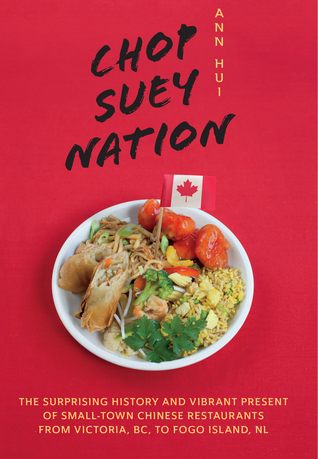 As usual, Tania and I are in complete agreement about Canada Reads’ quest to find a book that will change Canada. The notion that there is a book that can do this is overly optimistic (to put it politely). But books can change individuals (see Tania’s post on Women of Great Narrative), and even groups of individuals, and I guess that this can eventually lead to change. We can hope, at least. At any rate, current events in Canadian news and politics, Canada Reads’ mandate this year, and Tania’s post all came together to inspire this post of mine.
As usual, Tania and I are in complete agreement about Canada Reads’ quest to find a book that will change Canada. The notion that there is a book that can do this is overly optimistic (to put it politely). But books can change individuals (see Tania’s post on Women of Great Narrative), and even groups of individuals, and I guess that this can eventually lead to change. We can hope, at least. At any rate, current events in Canadian news and politics, Canada Reads’ mandate this year, and Tania’s post all came together to inspire this post of mine.
I am sad to say that it is becoming increasingly difficult for me to recognize Canada as the country in which I grew up. I won’t get into all of the reasons for this feeling (it would require a very long treatise), but I will focus on one issue that has been particularly bothering me: We’re moving backwards in our treatment of our First Nations.
Canada is one of the nations that has voted against the UN Declaration on the Rights of Indigenous Peoples, despite the fact that Canadians helped to draft this document. The objections from our government are wishy-washy (The Minister of Indian Affairs) and pandering (Harper’s heartbreaking worries about being “politically correct”). I’ve read the entire declaration (you can read it here) and I can see nothing objectionable in it. The spirit of this declaration can be found in the final article: “The provisions set forth in this Declaration shall be interpreted in accordance with the principles of justice, democracy, respect for human rights, equality, non-discrimination, good governance and good faith.” There’s nothing wrong with any of the words in that sentence, unless they are hollow. There may be some articles that may cause issues in the future, but that’s a good thing! This document is a statement of intent. A way to move forward to address the massive hangover of colonialism. Situations that arise because of it can, and should, be addressed. It should be a fluid process of amendments and refinements, just like the US Constitution and The Charter of Rights. All of this aside, the reason that Canada, The United States, Australia, and New Zealand voted against this document could not be more transparent. It’s found in Article 32:
1. Indigenous peoples have the right to determine and develop priorities and strategies for the development or use of their lands or territories and other resources.
2. States shall consult and cooperate in good faith with the indigenous peoples concerned through their own representative institutions in order to obtain their free and informed consent prior to the approval of any project affecting their lands or territories and other resources, particularly in connection with the development, utilization or exploitation of mineral, water or other resources.
You only have to look at Alberta’s political priorities regarding the “oilsands” or what’s happening in New Brunswick (just a few examples, to be sure), to see why our Federal Government and our ambassador would object to Article 32. Basically, it stops the money making machines and makes them accountable.
By now, you’re asking, “What does this have to do with books, Kirt?’ Well, it brings me to a Canadian novel that changed one Canadian person (me): Green Grass, Running Water by Thomas King. King’s novel was a contender for the 2004 Canada Reads (The Last Crossing by Guy Vanderhaeghe, which won that year, is also an excellent book, by the way), and it would be my choice for this year’s list, but I don’t think they do “do-overs” at Canada Reads. It is certainly a novel that Canada needs to read right now. It addresses all of the issues I’ve been discussing regarding Canada’s current treatment of our First Nations. It completely changed how I think about the issue, and about Natives in general. It is satirical, magical realism, and a great story, told without being pedantic or self-righteous, with plenty of pathos, but with just as much humour (of all things). King’s Coyote is one of the great characters of modern literature, in my opinion. It is certainly one of my favourite books of all time. It’s also one of Tania’s favourites, as it happens. She has confided in me that whenever she meets Mr. King she is “reduced to a giggling puddle of fangirl.” I’m sure that if I ever met him I would carry myself with more dignity, but I would be a giddy fanboy inside.
There are a bunch of Native authors that Tania and I think Canadians should be reading, or revisiting, right now. Checking out these books might lead to the change that Canada Reads is looking for: The Inconvenient Indian by Thomas King (really, anything by King) Funny You Don’t Look Like One by Drew Hayden Taylor (all of his books are supposed to be very good, too) One Native Life by RichardWagamese Three Day Road, Through Black Spruce ,
and The Orenda by JosephBoyden
Nobody Cries at Bingo by Dawn Dumont (an Edmonton author!) Kiss of the Fur Queen by Tomson Highway Poems of Rita Joe by Rita Joe






Pingback: The Libris Awards Longlist | writereads
Pingback: Kirt’s June Pick | writereads
Pingback: National Aboriginal Awareness Month | writereads
I’m glad you linked to this post, because I missed it the first time. I have to admit that I haven’t read anything by Thomas King yet, but am planning to read Green Grass, Running Water for my A-Z CanLit Challenge. I’m almost at letter K, and I’ve been looking forward to it. Now, even more so after reading this post. I have read Boyden and Wagamese, but King is a glaring omission that I really need to fix. Good post!
Hope you love GGRW as much as we did. – Kirt